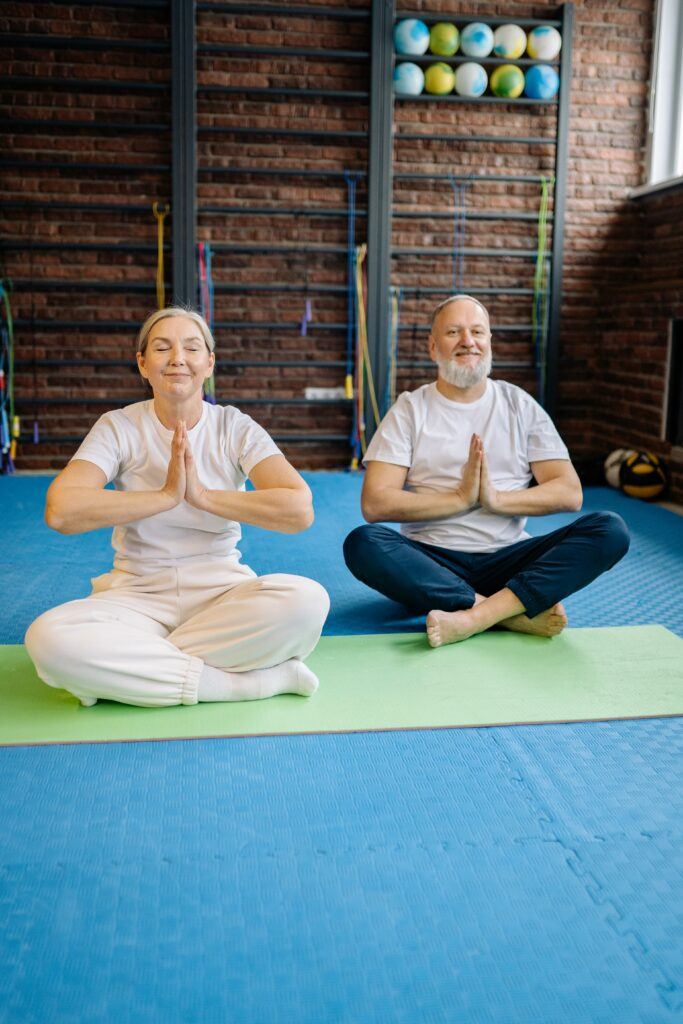
Meditation is a practice that has been around for thousands of years, and it has been used for various purposes, including spiritual and religious ones. However, over the years, meditation has gained significant popularity as a tool for improving mental and physical health. In this article, we’ll discuss the benefits of meditation and why it’s worth considering incorporating this practice into your daily routine.
Reduced Stress and Anxiety
Firstly, one of the primary benefits of meditation is its ability to reduce stress and anxiety. Stress and anxiety are common problems that many people face. It can lead to a range of physical and mental health issues if left untreated. Meditation has been shown to reduce the body’s stress response by lowering levels of cortisol, a hormone that’s released in response to stress. By reducing cortisol levels, meditation can help reduce feelings of stress and anxiety, allowing you to feel more relaxed and calm.
Improved Sleep
Sleep is crucial for overall health and well-being, but many people struggle with getting enough quality sleep. Meditation has been shown to improve sleep quality by reducing the activity in the brain’s “default mode network,” which is responsible for the constant chatter that can keep us awake at night. By quieting the mind through meditation, we can experience a more restful and rejuvenating sleep. This can improve our overall health and well-being.
Reduced Symptoms of Depression
Depression is a mental health condition that affects millions of people around the world. While meditation should not be used as a substitute for professional treatment, it can be a helpful tool in managing symptoms of depression. Meditation has been shown to increase the production of serotonin, a neurotransmitter that’s often low in people with depression. By increasing serotonin levels, meditation can help improve mood and reduce symptoms of depression.
Improved Focus and Concentration
In today’s fast-paced world, it’s easy to feel overwhelmed and distracted by the constant stream of information around us. Meditation can help improve focus and concentration by training the mind to stay present and focused on the task at hand. By practising mindfulness meditation, we can learn to bring our attention back to the present moment. This improves our ability to concentrate on important tasks.
Lower Blood Pressure
High blood pressure is a significant risk factor for heart disease, stroke, and other health problems. Meditation has been shown to lower blood pressure by relaxing the body and reducing stress. By reducing stress, meditation can also help lower the risk of other health problems associated with chronic stress.
Increased Self-Awareness
Meditation can help increase self-awareness by helping us become more in tune with our thoughts, feelings, and physical sensations. By practising mindfulness meditation, we can learn to observe our thoughts and emotions without judgment. This allows us to develop a deeper understanding of ourselves and our patterns of behaviour. This increased self-awareness can help us make more conscious choices in our lives, leading to greater happiness and fulfilment.
Improved Emotional Well-being
Meditation can help improve emotional well-being by reducing feelings of stress, anxiety, and depression. By learning to observe our thoughts and emotions without judgment, we can develop a more positive and compassionate attitude towards ourselves and others. This leads to greater emotional resilience and well-being.
Improved Immune Function
The immune system plays a crucial role in protecting the body from disease and infection. Chronic stress has been shown to weaken the immune system, making us more susceptible to illness and disease. Meditation has been shown to reduce stress and strengthen the immune system. It does this by increasing the activity of natural killer cells, which are responsible for fighting off infections and cancer cells.
Improved Relationships
Meditation can improve relationships by helping us develop greater empathy, compassion, and understanding towards others. By learning to observe our own thoughts and emotions without judgment, we can develop a deeper understanding of the thoughts and emotions of those around us. This increased awareness can help us communicate more effectively, resolve conflicts more peacefully, and build stronger and more meaningful relationships.
Increased Creativity
Meditation can help increase creativity by allowing us to tap into our subconscious mind. By quieting the mind and allowing our thoughts to flow freely, we can access new ideas. This can be especially helpful for artists, writers, and other creative professionals.
Improved Cognitive Function
Meditation has been shown to improve cognitive function by increasing blood flow to the brain and strengthening the connections between brain cells. This can help improve memory, attention, and other cognitive abilities, making it easier to learn new information.
Improved Physical Health
In addition to the mental health benefits, meditation has also been shown to improve physical health in a number of ways. For example, meditation can help reduce chronic pain by reducing the activity in the part of the brain that processes pain signals. It can also help reduce inflammation, which is a key factor in many chronic diseases.
Getting Started with Meditation
If you’re interested in reaping the benefits of meditation, it’s easy to get started. There are many different types of meditation, so it’s important to find a practice that works for you. Some popular forms of meditation include:
- Mindfulness meditation: This involves focusing on the present moment and observing thoughts and emotions without judgment.
- Transcendental meditation: This involves repeating a mantra or sound to quiet the mind.
- Loving-kindness meditation: This involves cultivating feelings of love, compassion, and kindness towards oneself and others.
- Body scan meditation: This involves focusing on physical sensations in the body and bringing awareness to any areas of tension or discomfort.
- Yoga: This involves physical postures, breathing exercises, and meditation, and is often practised for both physical and mental health benefits.
To get started with meditation, find a quiet and comfortable place and focus on your breath. You can start with just a few minutes a day and gradually increase the length of your meditation practice as you become more comfortable.
Conclusion
Finally, meditation is a powerful tool for improving mental and physical health. By reducing stress and anxiety, improving sleep, and increasing self-awareness, meditation can help us lead happier, healthier lives. If you’re new to meditation, start small and be patient with yourself. Over time, with regular practice, you’ll start to see the many benefits of this ancient practice for yourself.





